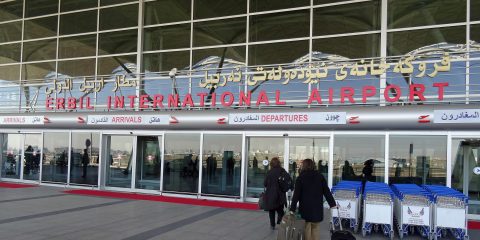Alas, Iraq’s election may make little difference
On April 30th, Nuri al-Maliki stepped behind a cardboard voting booth in a hotel ballroom in Baghdad, cast his ballot and raised a triumphant finger dipped in purple ink, urging other Iraqis to head for the polls, too. But this was in the relative safety of the fortified “green zone”, the government area which, he […]On April 30th, Nuri al-Maliki stepped behind a cardboard voting booth in a hotel ballroom in Baghdad, cast his ballot and raised a triumphant finger dipped in purple ink, urging other Iraqis to head for the polls, too. But this was in the relative safety of the fortified “green zone”, the government area which, he fears, is the ultimate target of opposition fighters now proliferating to the west and north of the capital. Elsewhere in Iraq the election took place amid bombs and bitter sectarian animosity between Sunni and Shia politicians. Even if most Iraqis managed to vote, there was no sign of this gulf being bridged. The dour, authoritarian Mr Maliki seems bent on keeping an almost exclusively Shia grip on Iraq.
Since January the security forces have lost control of large chunks of Anbar province, west of Baghdad, to aggrieved Sunni fighters, some of them proclaiming allegiance to al-Qaeda, who complain that Mr Maliki, a Shia, has imprisoned, killed and squeezed them out of public life since he was elected eight years ago. In the run-up to the election, the noise of suicide-bombings and other attacks on security forces and polling stations has reverberated in and around Baghdad. Violence has also afflicted the mixed Sunni-Shia provinces of Diyala and Salaheddin, just north of the capital, and Nineveh, a largely Sunni province surrounding Mosul farther north.





